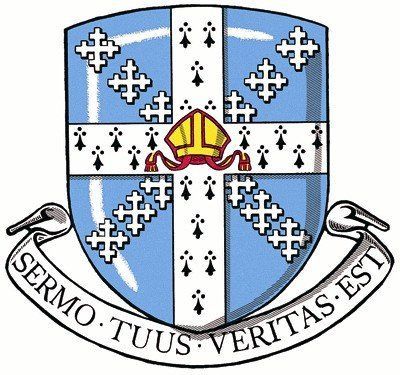Lionel Deimel comments on General Seminary’s short report to General Convention that paints an optimistic picture of the seminary’s future with next to no attention to the ongoing crisis at the institution.
The two-page report paints an encouraging picture of a seminary emerging from financial difficulties and implementing an innovative program that will better prepare men and women for ordained roles in The Episcopal Church, while at the same time easing the financial burden of a first-class seminary education. General Convention deputies should be pleased and move along to more pressing matters of business, right?
The reality, of course, is that the General Theological Seminary of The Episcopal Church has been in chaos since the beginning of the academic year and, in the opinion of many, its continued existence after nearly two centuries is in doubt. (For readers for whom this is news, this story will give you some idea of what has been going on at the church’s oldest seminary. See Google for other stories and perspectives.)
The main body of the GTS Board of Trustees’ report is under one thousand words long, about a page and a half. About 13% of the report recounts the history of the seminary. A bit more than 19% concerns “A Plan to Choose Life,” which is mostly about the improved financial health of the seminary. Somewhat short of half the report (about 44%) concerns a new program, The Way of Wisdom and The Wisdom Year. This is described as a growing success. One paragraph concerns the hiring of the Very Rev. Kurt H. Dunkle as Dean and President, which contributes about 10% of the report. A final paragraph addresses the upcoming 200th anniversary of the seminary and its readiness for the next 200 years (another 6%). The final 6% of the report, arguably, alludes to the troubles besetting GTS in the current academic year:
Under Dean Dunkle’s leadership, General Seminary is addressing, head-on, the changing world and the changing Church. This rapid reshaping has not been without some disruption—change is always painful, but it is essential to ensure the viability of General. We know that others in the seminary system are struggling with many of the same issues.
Additionally, in the final paragraph, there is also a reference to “working through disruptions that result from rapid change.”.
In fact, most of the faculty went on strike, intending to form a union, because the new Dean and President was viewed as an insensitive autocrat who acts more like a shift manager at McDonald’s than an academic administrator. No mention is made of faculty members being fired for their efforts and rehired, less tenure, for the remainder of the academic year. Nothing is said about the faculty members who are leaving or might leave. The report is silent about the fact that, despite pleas from students, alumni, and interested Episcopalians, the Board of Trustees continues to assert its complete confidence in Dean Dunkle.

